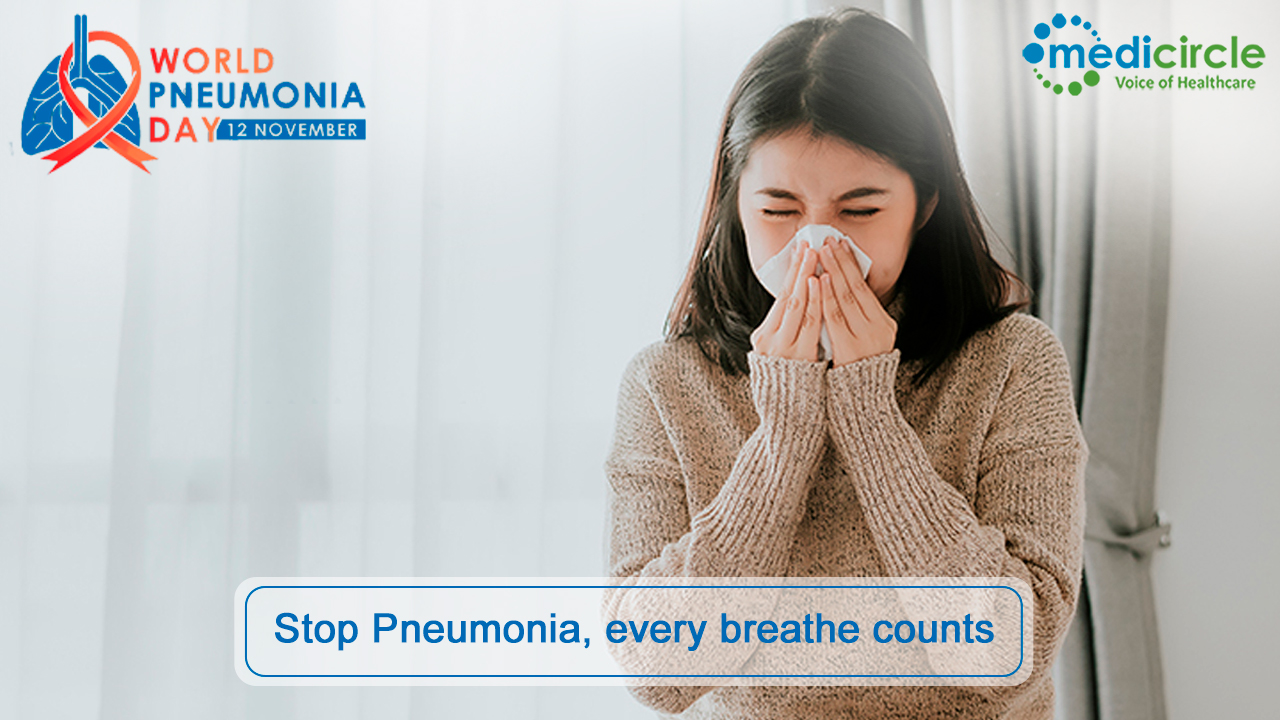World Pneumonia Day is observed annually on November 12 with an aim to highlight and raise awareness about the complications and issues related to pneumonia. According to the World Health Organisation (WHO), the rate of the severity of pneumonia is higher among children under five years of age and adults above 65 years of age. Therefore, it is necessary to be informed and take precautions to prevent the disease at an early stage.
Many pneumonia deaths are attributed to environmental (e.g., air pollution, hand washing, and extreme temperatures) and behavioural (e.g., child wasting, smoking, and low birth weight) risk as defined by the Global Burden of Disease. The risk factors for pneumonia death vary by age and by gender.
Child wasting – A child is wasted when they have extremely low weight for height. Wasting often indicates recent and severe weight loss, although it can also persist for a long time. It usually occurs when a child has not had food of adequate quality and quantity and/or they have had frequent or prolonged illnesses. Child wasting alone contributed to 367,800 (55%) deaths in 2019 according to Global Burden of Disease.
More than 70 percent of the estimated 47 million wasted children live in high-burden pneumonia countries. India alone is home to 20 million wasted children. In 14 Sub-Saharan African countries, more than 60 percent of child pneumonia deaths are attributable to wasting.
Air pollution - Almost a third of all pneumonia deaths were attributable to polluted air – killing around 749,200 in 2019. Household air pollution (polluting fuels and technologies for cooking, heating, and lighting) contributed to 423,000 of these deaths while outdoor air pollution (pollutants emitted by industries and car exhaust smoke) contributed to 326,000. Not all populations are equally vulnerable to air pollution-related pneumonia deaths. It is the very young and the very old who are at the greatest risk.
Hand washing - Of all WASH interventions, hand washing has the greatest potential to reduce the risk of death from pneumonia for children and adults. Studies have shown that improved hand washing with soap reduces pneumonia risk. Studies suggest that washing hands with soap after defecation and before eating can cut the respiratory infection rate by up to 25 percent. Investing in this simple intervention for the most vulnerable children has the potential to make a big impact.
Preventing Pneumonia
One effective way of preventing the risk of pneumonia is to adhere to timely vaccination, especially the high-risk groups. Various adult vaccines like influenza and pneumococcal are proven to be successful in reducing the incidence and severity of bacterial pneumonia in adults.
To reduce child and adult pneumonia deaths, countries will need to tackle the risk factors and improve the coverage of high-impact interventions – especially pneumonia-fighting vaccines and treatments like oxygen – among the most vulnerable populations.

 World Pneumonia Day is observed annually on November 12. It is the biggest infectious killer of adults (above65 years of age) and children (below 5 years). Let’s spread awareness about its main contributing factors and ways to prevent it.
World Pneumonia Day is observed annually on November 12. It is the biggest infectious killer of adults (above65 years of age) and children (below 5 years). Let’s spread awareness about its main contributing factors and ways to prevent it. 









.jpeg)




.jpeg)

.jpg)













